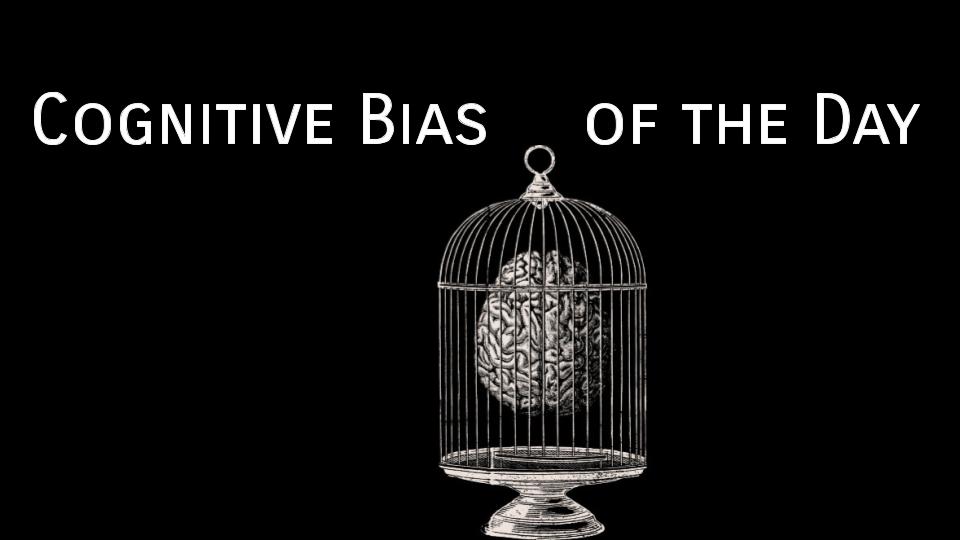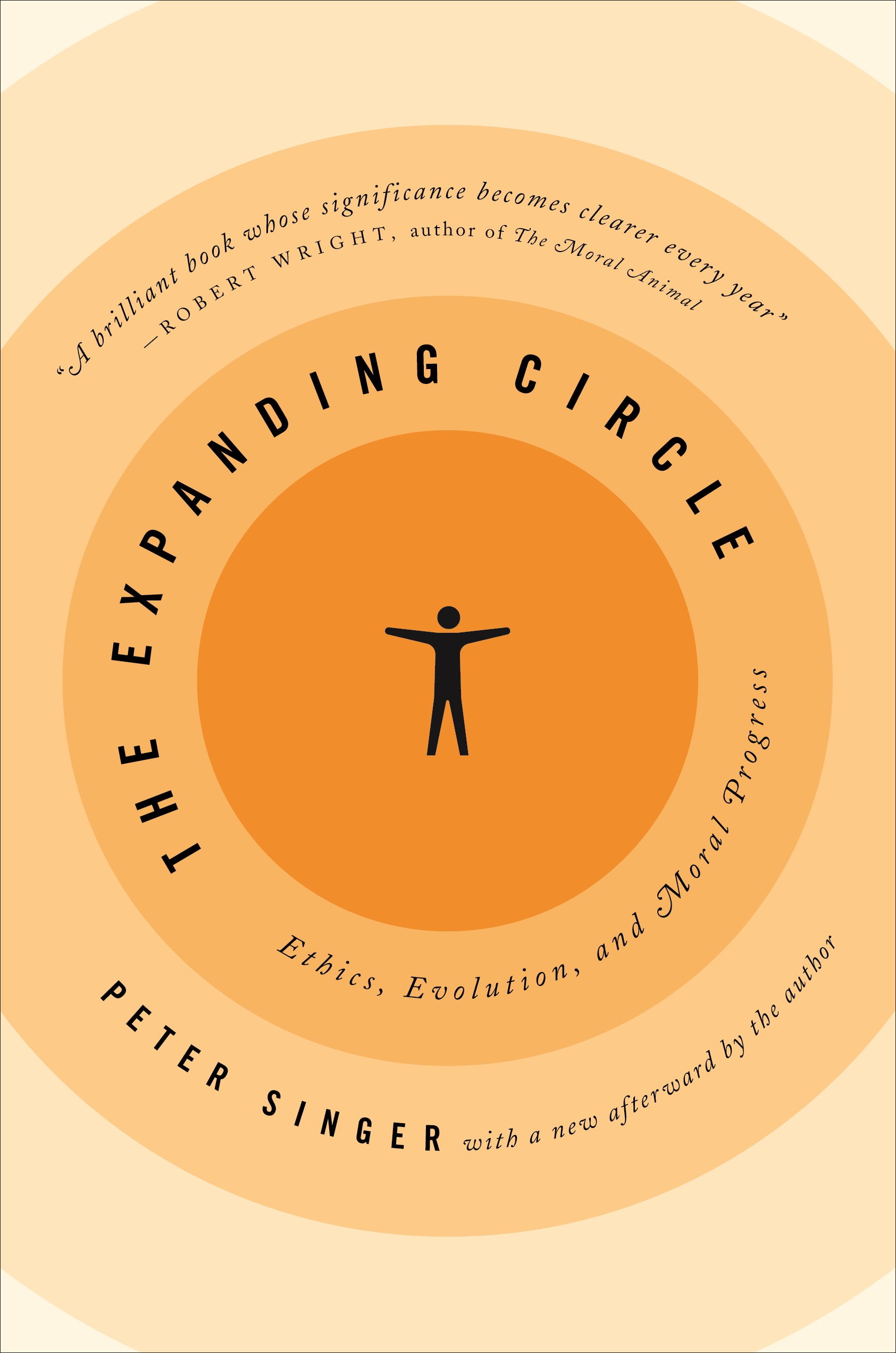Common Sense

Enlightenment is man’s emergence from his self-imposed immaturity. Immaturity is the inability to use one’s understanding without guidance from another. This immaturity is self-imposed when its cause lies not in lack of understanding, but in lack of resolve and courage to use it without guidance from another.
~Immanuel Kant
Universality
You are forgiven if you did not fully understand the ideas from the last lesson or even the quote above. Kant's ideas form a notoriously difficult to understand doctrine. You can see why. Kant was trying to find a foundation for all those traditional views that had been pushed aside by thinkers who were blazing forward with the scientific method. In a way, then, you can see Kant as a counter-revolutionary force; he was trying to preserve the classic views of belief in an immortal soul and the freedom of the will. Despite all this, there is still something revolutionary in his view: the hypothesis that we do not see reality as it is. Because he was trying to establish a foundation for timeless entities, like souls and morality, he looked at the world in a fundamentally different way. This is his so-called Copernican Revolution. So important was this thesis that thinkers more than a century later would read his work, as apparently Einstein did (see Rovelli 2017, chapter 3).1
Kant's metaphysics are not the topic of this lesson, though. The main lessons to draw from the last lesson should be that a. it is human understanding that gives the perceived order of the universe that we see and b. that human reason similarly governs our actions. In other words, just like the universe operates according to a universal law, our will must also operate according to some law. But our will is not in the empirical realm, with all the other objects we perceive; our will is in the transcendental realm. So the law that it must conform to does not come from human understanding but from human reason. Human reason allows us to discover those laws that any rational will must conform to, regardless of the consequences. Robert Johnson and Adam Cureton, in their entry on Kant's Moral Philosophy in the Stanford Encyclopedia of Philosophy, put it this way:
“If x causes y, then there is some universally valid law connecting Xs to Ys. So, if my will is the cause of my φing, then Φing is connected to the sort of willing I engage in by some universal law. But it can’t be a natural law, such as a psychological, physical, chemical or biological law. These laws, which Kant thought were universal too, govern the movements of my body, the workings of my brain and nervous system and the operation of my environment and its effects on me as a material being. But they cannot be the laws governing the operation of my will; that, Kant already argued, is inconsistent with the freedom of my will in a negative sense. So, the will operates according to a universal law, though not one authored by nature, but one of which I am the origin or author. Thus, Kant argues, a rational will, insofar as it is rational, is a will conforming itself to those laws valid for any rational will” (Johnson and Cureton, entry on Kant's Moral Philosophy in the Stanford Encyclopedia of Philosophy, section 10).
In short, if the moral law is to be a law, then it needs to apply to everyone, at all times, in any given context, just like gravity applies to everyone at all times. This moral law, then, is a command from reason, a law that any rational will must conform to, which Kant called the Categorical Imperative (CI).
Important Concepts
Kant's Ethics
Comments on the significance of Kant's work
Kant is perhaps the most important thinker we've covered so far. This is not because I believe he's right (I don't) or that his arguments are extremely convincing (Sometimes they're not). He's important because most thinkers after Kant, even those who claim to be non-Kantian, take as the subject of inquiry of ethics to be just what Kant defined it as (MacIntyre 2003: ch. 14). Even those who have never heard of philosophy or Kant conceive of ethics in the way that Kant conceived of ethics. Consider how Kant defines moral terms and the logic of his moral discourse: what is moral is simply what one must do. Why must one do it? Reason commands it, even if there are negative consequences, even if you don't want to, even if it is against your interests—because this must be.
Let me try to convey the important of Kant's work in another way. As MacIntyre argues, once you see Kant's line of reasoning and way of defining morality, other moral discourses seem almost absurd. Of course morality is what you must do and not just merely what you'd like to do or what is in your best interest. But this simply wasn't obvious before Kant said it. This brings us to the cognitive bias of the day.

If you ever needed a reminder of how we don't truly understand ourselves, there's always hindsight bias, also known as the I-knew-it-all-along effect. As you can imagine, this bias leads us to mistakenly assume that past events were actually more predictable than they really were. For example, in one study, subjects’ opinions on a controversial subject were measured, e.g., capital punishment. The subjects then viewed persuasive material either for or against said policy. Then subjects had their opinions measured again. The subjects were usually closer to the persuasive message they had just viewed. But(!), here’s the stunning find. Subjects had great difficulty reconstructing their original opinion(!). In other words, they were in the grip of their current beliefs, the ones altered by the persuasive message. And so, they often substituted their updated belief for their original opinions (Nisbett and Wilson 1977). This just goes to show you that if you just learned something and you feel like you knew it all along, you should probably second guess that feeling.
Hindsight bias also leads us to overestimate our ability to predict events. In another study, subjects reported the probabilities of fifteen possible outcomes with regards to Richard Nixon’s foreign policy objectives while he was traveling on a diplomatic run. When Nixon returned to the US and those topics which the subjects had predicted the probability of had been actualized, the subjects were asked again about the probabilities of the events. Subjects tended to exaggerate the probability they had assigned to events that did come to pass, and shrunk the probability of the events that did not come to pass. This was all done non-consciously, of course, since the subjects did not have their original probabilities in front of them—and hence couldn’t make a direct comparison (Fischhoff and Beyth 1975).2
And so, just like Darwin's theory of evolution seems obvious once he lays it out for you, Kant's conception of moral discourse makes all previous moral discourses seem weak. This is not to say that Kant's ethical theory is obviously true, but rather that Kant's way of thinking about morality—as rules that we have to abide by—seems very intuitive. In other words, it seems like the right way to think about morality.

Why is Kant's moral discourse intuitive? In chapter 4 of The Expanding Circle, Peter Singer gives an explanation for how reason plays the essential role. He first makes the case that early ethical systems were probably marked less by explicit moral reasoning and more by habit and custom, habits and customs which were themselves stabilized by our social instincts of kin and reciprocal altruism. In other words, early societies simply found social norms that "worked" and those societies that didn't find social norms that "worked" fell apart—much like evolutionary theory would predict.3 In fact, Singer reminds us that our moral language shows the relics of this. The word “ethics” comes from the Greek ēthos, which normally means “character” but can, in the plural, mean “manners” and is related to the Greek word for custom, ethos (short e). The word “moral” comes from the Latin mos and morals, which mean “custom” (Singer 2011: 94).
As societies grew in complexity and encountered other social orders, its members had to face various moral disputations, debates about what’s the right thing to do, what’s best for society, what norms are outdated, etc. This is where moral reasoning enters the picture. In order to be persuasive, moral reasoning would have to take the shape of a disinterested citizens. It couldn't, for example, just be me defending what is good for me. Successful moral reasoning and argumentation would persuade large numbers of people by appealing to the interests of large numbers of people. But, Singer explains:
“Reasoning is inherently expansionist. It seeks universal application. Unless crushed by countervailing forces, each new application will become part of the territory of reasoning bequeathed to future generations. Left to itself, reasoning will develop on a principle similar to biological evolution. For generation after generation, there may be no progress; then suddenly there is a mutation which is better adapted than the ordinary stock, and that mutation establishes itself and becomes the base level for future progress. Similarly, though generations may pass in which thinkers accept conventional limits unquestionably, once the limits become the subject of rational inquiry and are found wanting, custom has to retreat and reasoning can operate with broader bounds, which then in turn will eventually be questioned” (Singer 2011: 99-100).4
The bottom line
As Singer argues, moral reasoning gave birth to the idea of impartiality, i.e., making decisions based off of objective criteria.5 Through a long evolution of moral discourses, from early hunter-gatherer societies to the Enlightenment, the logic of moral reasoning became more impartial, stricter, and less constrained by context and circumstances. By the time Kant got to it, it was ready to be fully universalized. Morality became absolute. In this way, Kant is the embodiment of the Enlightenment, having supreme confidence in the power of courageous reasoning to be the ultimate foundation for irrefutable moral truth. To discover the moral law Kant argued that we must use reason; only reason can guide us into finding those precepts that are to be followed by all rational beings. In arriving at these commandments from reason, Kant clearly distinguishes between hypothetical imperatives and categorical imperatives. Hypothetical imperatives, as you may notice, are the kind that Aristotle, Hobbes, Mandeville, and divine command theorists made. But Kant’s categorical imperative is of the kind “You ought to do X just because you ought to do X.” The most universalist moral discourse is born. Its justification: reason commands that it must be.


Other formulations of the Categorical Imperative
Kant argued that there are multiple ways of formulating the categorical imperative and that these ways are all ultimately equivalent, meaning that they will arrive at the same moral conclusions on every case. The following are formulations are from Johnson and Cureton's entry on Kant's Moral Philosophy in the Stanford Encyclopedia of Philosophy.
The Humanity Formulation
The second formulation of the Categorical Imperative that Kant gives us is the humanity formulation: Act in such a way that you treat humanity, whether in your own person or in the person of another, always at the same time as an end and never simply as a means to an end. Perhaps a simpler way of putting it might be the basic rule of not treating others merely as a means to an end. In a nutshell, don't use people.

Being rude to fast food
workers is clearly prohibited
by the humanity formulation.
Since Kant believes that the three formulations are equivalent, the humanity formulation should help us arrive at the same perfect and imperfect duties as the universal law formulation. Thankfully, this seems pretty straightforward. When you steal from someone, you are definitely using them. In the very least, you let them use their resources to acquire whatever it is that you stole from them. When you lie to someone, you similarly use them. You tell them erroneous information so that they'll do or think what you find it convenient for them to do or think. When you abuse drugs, you are using yourself. And so, without too much effort, you can duplicate the perfect duties arrived at using the universal law formulation with the humanity formulation.
The Autonomy Formulation
Kant's third formulation is the autonomy formulation: Act so that through your maxims you could be a legislator of universal laws. The idea behind this formulation is to stress the source of human dignity: that we are the lawgivers. And to be universal lawgivers we must be maximally impartial, or fair.
The Kingdom of Ends Formulation
Kant's final formulation is the kingdom of ends formulation: Every rational being must act as if he were by his maxims, at all times, a lawgiving member of the universal kingdom of ends. In other words, imagine a society where everyone treated each other as ends in-and-of-themselves. Further, imagine that all your actions were immediately turned into laws in this special society. What sorts of laws would you enact? Presumably, at least, you'd say that lying, stealing, and murder are wrong.
Sidebar


Criticisms
First off...
Before I give objections to Kant's ethical theory, I should give one quick aside. The characterization of Kantian ethics that I've given, although mainstream, does have some critics. For example, Barbara Herman warns that Kant’s views are too often characterized as “rule-fetishism,” and that we should instead focus on how “moral rules give shape to the agent’s desire to be a moral person” (Herman 1993: 27). To be honest, when I read Kant, I really do get that rule-fetishist vibe. But I wanted to make sure that you all know that my interpretation isn't the only one.
Nonetheless...
There are some problems. First, since Kant developed his ethical system in the 18th century and tried his best to ground it in a transcendental reality, advances in mathematics (non-Euclidean geometry) and physics (relativity) yield various empirical problems for his view. I might add, though, that some of his theses turned out to be right, and others turned out to be influential to major thinkers of the 20th century (see footnote 1). We won't focus on these here because a. we are banishing all empirical problems until Unit III, and b. Kant's view is so much more ambitious than the others that we've covered, in a sense, it makes sense that it has more obvious empirical problems.6

Some representatives of
the new atheist movement.
Second, MacIntyre (2003) closes his chapter on Kant by pointing out that, since Kant has completely severed morality from self-interest and positive consequences, Kant has fully severed the connection between morality and happiness. Indeed, in his 1788 Critique of Practical Reason, Kant states that "Morality is not properly the doctrine of how we may make ourselves happy, but how we may make ourselves worthy of happiness." Kant recognized that this is an extremely unsatisfactory state of affairs, and he tried to remedy it by including in his worldview God’s existence, freedom of the will, and the immortality of the soul. Given this worldview, God could have the power to ultimately crown virtue with happiness, albeit in the next life. However, this isn't going to work if one is taking a secular point of view. In effect, by grounding his ethical system in God's existence, the freedom of the will, and the immortality of the soul, Kant has put his whole theory on shaky ground. This is because a. God's existence has been increasingly called into question, b. human free will has been called into question (see Laplace's Demon and The Person and the Situation), and c. the existence of souls has been called into question.
Third, some scholar's think Kant is too reliant on reason. Around the same time as Kant’s writing, there was a strong tradition of “sentimentalist philosophers”, such as David Hume and Adam Smith, who built their moral theories based on moral emotions (e.g., see Prinz and Nichols 2012). It must be remembered that Kant wrote as a conservative reaction to the crisis of the Enlightenment. He was simultaneously horrified about the traditions being thrown by the wayside and, since he was influenced by the Enlightenment, confident that reason can put things back in order. This was perhaps the height of faith in reason, a time when people believed that reason can do more than it really can. In fact, anthropologist Robin Fox claims that academia is currently still being harmed by a quasi-divinical treatment (i.e., worship) of reason that began in the Enlightenment.
“The previous paragraphs are taken, in fact, from a previous book. There also I said that any of these diatribes are only contribution to a larger project, the aim of which is to free us from the intellectual shackles of the Enlightenment faith in reason, the romantic passion for the individual, and the nineteenth-century worship of progress. But it is worth saying over and over again because no one gets it the first time” (Fox 1989: 233-4).
Fourth, and on a more practical note, even if we could resolve all the issues mentioned above, there’s still the very mundane fact that Kantianism appears to be far too strict. The theory states, for example, that you have a perfect duty not to lie. In other words, you can never lie—even when lying would lead to a better outcome, even when lying could save a life (as Kant stated in an essay titled On a Supposed Right to Tell Lies from Benevolent Motives), and even when lying can prevent some greater harm. To many, not only are some lies are innocuous, but consequences clearly matter. If you could, say, save a life by lying, then some argue you definitely should lie.

A ticking time bomb.
Relatedly, what happens when one duty conflicts with another? For example, what happens if you have to lie to save a life? We have a perfect duty both to not lie and to protect life. Here's another example. Suppose a terrorist has planted a ticking time bomb in a shopping mall, although you don't know which one. You've captured the terrorist but he is not cooperating. One might suggest that torture is a good way to get the terrorist to reveal where the bomb is. Kantianism, however, would be opposed to this sort of treatment, since it would be treating the terrorist as a means to an end. Should they be punished? Sure. But not tortured. But obviously, we have a duty to save lives. Which duty has primacy: saving lives or not torturing? In this regard, Kantianism is too vague, at least when duties conflict; put more precisely, Kantianism is not action-guiding in the case of conflicting duties.
The preceding points bring up a distinction between two approaches to moral reasoning. Kantian ethics is characterized by its duty-oriented perspective. We have, Kant argues, certain perfect duties that we must always abide by, regardless of context. But other thinkers think that consequences are effectively all that matter. Duties are important, sure, but producing the best consequences possible is the only real moral mandate.
This brings us to a topic I had been deliberately avoiding. As it turns out, modern-day Kantians are mired in a brutal debate with another school of ethics. This is, in fact, how ethics classes typically introduce Kant's categorical imperative: in competition with a consequence-driven approach to ethics. I didn't quite do that, but I was only delaying the inevitable. Perhaps it's true. Perhaps the best way to understand Kantianism is to view it in comparison with its most bitter rival. I suppose it's true that only the dead have seen the end of war. And this, the war between Kantianism and the utilitarians, is a war that is still being waged. Much ink has already been spilled. We're about to add a little more...


Immanuel Kant is an immensely influential figure in the history of ethics in that most people, philosophers and non-philosophers alike, conceive of moral terms in the way in which Kant defined them: as being absolute and universal—or so argues Alisdair MacIntyre.
Kant's ethical system is grounded in his metaphysical system, and both of them are notoriously difficult to understand. His central claim is that we can be assured a priori that all of our experience will be law-governed due to the character of our cognition. As a consequence of this, however, we have no way of grasping causal relations outside of experience. And so, we cannot infer the existence of God and that his creation is a good one from experience alone. To discover the moral law then we must use reason, to find those precepts that are to be followed by all rational beings. In arriving at these commandments from reason, Kant clearly distinguishes between hypothetical imperatives and categorical imperatives. Hypothetical imperatives involve means-end reasoning and are the kind of moral reasoning that Aristotle, Hobbes, Mandeville, and divine command theorists engaged in. But Kant’s categorical imperative is of the kind “You ought to do X just because you ought to do X.”
There are several issues with Kantianism, including the dubiousness of his metaphysical assumptions (the existence of God, the immortality of the soul, etc.), an over-reliance on reason, an overly-strict fetishism about rules, and a failure to be action-guiding when perfect duties conflict.
FYI
Suggested Reading: Barbara Herman, Integrity and Impartiality
TL;DR: Marianne Talbot, Deontology: Kant, duty and the moral law
Supplementary Material—
-
Video: The School of Life, Immanuel Kant
Advanced Material—
-
Reading: Robert Johnson and Adam Cureton, Stanford Encyclopedia of Philosophy Entry on Kant’s Moral Philosophy, Section 10
-
Note: This section stresses Kant’s argument that freedom must be a necessary idea of reason. This notion is the strongest link to Kant’s first major work of his critical philosophy, Critique of Pure Reason.
-
-
Reading: Kant, Groundwork for the Metaphysic of Morals
Footnotes
1. Einstein was apparently fond of reading the work of philosophers. Per Rovelli, Einstein did not arrive at his views through the experimental method or through mathematical modeling. His revelations came in a series of thought-experiments, which were only later formalized into a mathematical language using Riemann's non-Euclidean geometry and much later proved experimentally. Also worthy of mention here is that some of Kant's have been vindicated by physics (see Rovelli 2018).
2. Note that the hindsight bias makes it extremely difficult to properly evaluate a decision that you've taken. This is evident in a study in which two groups were asked whether a given city should pay to have a full-time bridge monitor to protect against the risk that debris will block a local river, potentially causing floods. One group was given all the evidence available at the time of the city’s decision; the other group was given all that evidence plus they were informed that debris did in fact block the river and caused a flood. Additionally, they were instructed to not allow hindsight to distort their judgment. Nevertheless, only 24% of subjects from the first group judged that the city should get a bridge monitor, while 56% of subjects from the second group judged that the city should get a bridge monitor (Kamin and Rachlinski 1995). This makes one wonder if moral decisions are affected in a similar way. Nobel laureate Daniel Kahneman does claim that this bias can lead us to into believing that business moguls who take massive risks “knew it all along,” rather than accept the more practical belief that they just got lucky (Kahneman 2011: 202). This bias might influence issues relating to moral luck.
3. One example of Darwinian processes happening at the level of a society is when Protestantism proliferated throughout Europe in the 16th century. During this time period, various experimental communities cropped up, each having their own interpretation of Protestant Christianity. But mainstream Protestantism was eventually only configured from those communities that survived. In other words, those communities with a social order that could not hold together did not pass its particular social order, i.e., its memes, into the next generation. This could be seen as a form of natural selection (see Wilson 2003).
4. Michael Tomasello (2014) calls this the cultural ratchet effect, a cumulative process in which one culture's discoveries get passed on to the next generation, making it such that progress comes more easily and naturally and people don't find themselves constantly having to reinvent the wheel.
5. The idea of impartiality which was born through moral reasoning was originally limited to the members of one’s in-group. Singer reminds us that in the Bible the Israelites were instructed to only enslave non-Israelites (Leviticus 25: 39-46); a message that was echoed by Plato who suggested that Greeks only enslave non-Greeks and not fellow Greeks. But once this idea was born, i.e., the idea of impartiality, it took on a logic of its own—even if it took a while. “[O]nce reasoning has got started it is hard to tell where it will stop. The idea of a disinterested defense of one’s conduct emerges because of the social nature of human beings and the requirements of group living, but in the thought of reasoning beings, it takes on a logic of its own which leads to its extension beyond the bounds of the group” (Singer 2011: 114).
6. Nonetheless, even for moral anti-realists, like John Mackie (1990), there is something intuitively true about the conjecture that moral maxims are supposed to be universalizable and accessible to everyone (via reason or some other faculty)—another sign of the legacy of Kant.

